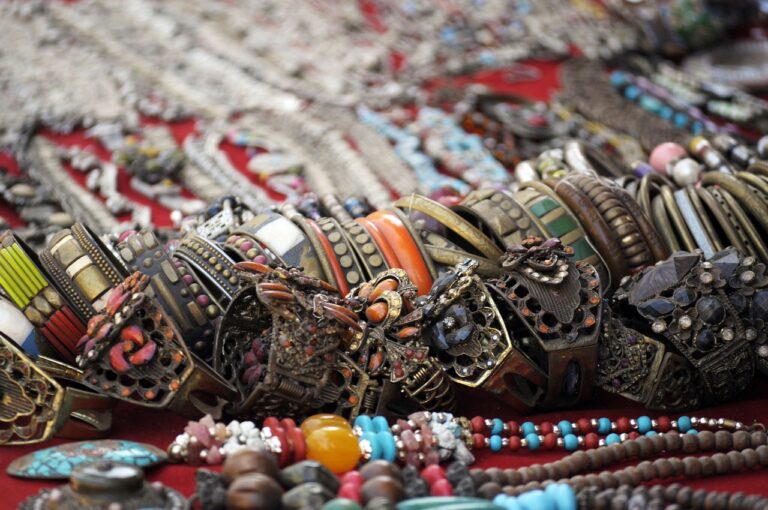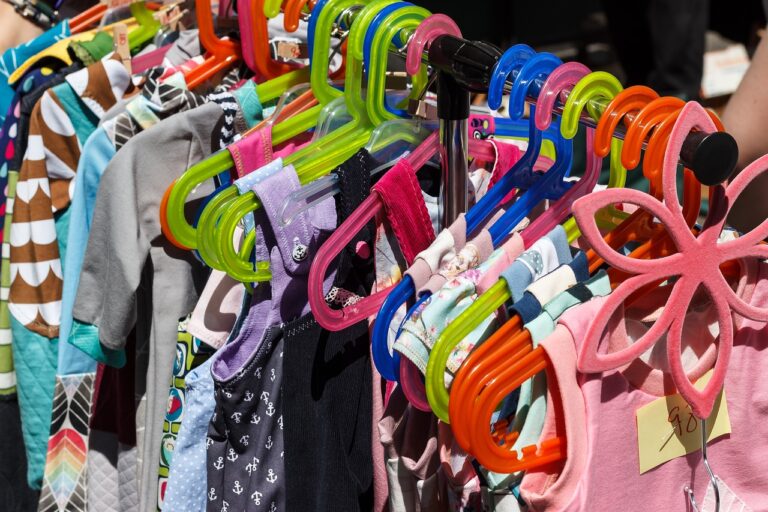Fashion and Ethical Consumerism: Making Informed Choices About Clothing Purchases
Fast fashion has become synonymous with constant design turnovers and rapidly changing trends, prompting consumers to frequently purchase new clothing items. The quick production cycle of fast fashion brands leads to immense environmental consequences, including high levels of water usage and pollution. Additionally, the mass production of these cheaply made garments often results in increased waste generation and overconsumption.
Furthermore, the use of synthetic materials in fast fashion production contributes to microplastic pollution in oceans and landfills. These non-biodegradable textiles shed tiny fibers during washing, ultimately contaminating our water sources and harming marine life. The carbon footprint of fast fashion further exacerbates environmental degradation, as the transportation and distribution of garments globally significantly increase greenhouse gas emissions.
Fast fashion leads to high levels of water usage and pollution
Mass production results in increased waste generation and overconsumption
Synthetic materials contribute to microplastic pollution in oceans and landfills
Carbon footprint of fast fashion exacerbates environmental degradation
The Importance of Fair Wages and Working Conditions in the Garment Industry
Fair wages and working conditions are crucial aspects of the garment industry that directly impact the lives of millions of workers worldwide. Ensuring that individuals are paid fairly for their labor and are provided with safe and healthy working environments is not only a matter of ethics but also a fundamental human right.
Without fair wages, garment workers often find themselves trapped in a cycle of poverty, unable to afford basic necessities or access proper healthcare. Similarly, inadequate working conditions can lead to injuries, long-term health issues, and even loss of life. By prioritizing fair wages and safe working conditions, companies can demonstrate their commitment to social responsibility and contribute to a more sustainable and equitable industry.
How to Identify Ethically Made Clothing
When looking to identify ethically made clothing, one key aspect to consider is the transparency of the brand. Ethical fashion brands often provide detailed information about their production process, including where and how their garments are made. Look for brands that openly share about their sourcing practices, manufacturing locations, and commitment to fair labor practices.
Additionally, paying attention to certifications and labels can help in identifying ethically made clothing. Certifications such as Fair Trade, Global Organic Textile Standard (GOTS), and Oeko-Tex Standard 100 indicate that the garment has met specific environmental and social standards. Keep an eye out for these certifications when making your clothing purchases to ensure you are supporting brands that prioritize ethical manufacturing practices.
What is fast fashion and how does it impact the environment?
Fast fashion refers to the mass production of low-cost clothing that imitates current fashion trends. This leads to a high turnover of clothing, resulting in increased waste and pollution in the environment.
Why is it important to consider fair wages and working conditions in the garment industry?
Ensuring fair wages and working conditions in the garment industry is crucial to supporting the well-being of workers and promoting ethical practices within the industry.
How can I identify ethically made clothing?
Look for certifications from organizations like Fair Trade Certified, GOTS (Global Organic Textile Standard), or WRAP (Worldwide Responsible Accredited Production). You can also research brands that are transparent about their supply chain and labor practices.







